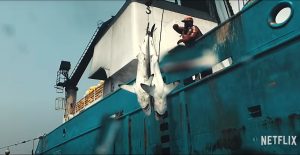By J. Berney, IWMC World Conservation Trust.
Foreword
This paper has not been prepared as a contribution to the review of the CITES criteria for amendment of Appendices I and II. It is published relative to the broad discussion surrounding the potential listing of commercially-exploited marine resources and the related potential conflict between CITES and the fisheries community, in which the review of the criteria is playing a significant role. Nor was it prepared to indicate that everything is fine in fisheries and that, therefore, there is no need to list marine species in CITES appendices.Its purpose is to explain how CITES works and how it would or could affect the fisheries community if such resources would be included in CITES appendices without the agree mentor support of the latter. It is primarily directed to the representatives of the fisheries community, whose knowledge ofCITES is, in general, insufficient.It is hoped that this paper would help them to act efficiently at all levels to achieve their own objectives and to prevent them measures they do not consider appropriate, if not counterproductive, from being imposed upon them.
View PDF in English.
View PDF in French.
View PDF in Spanish.


